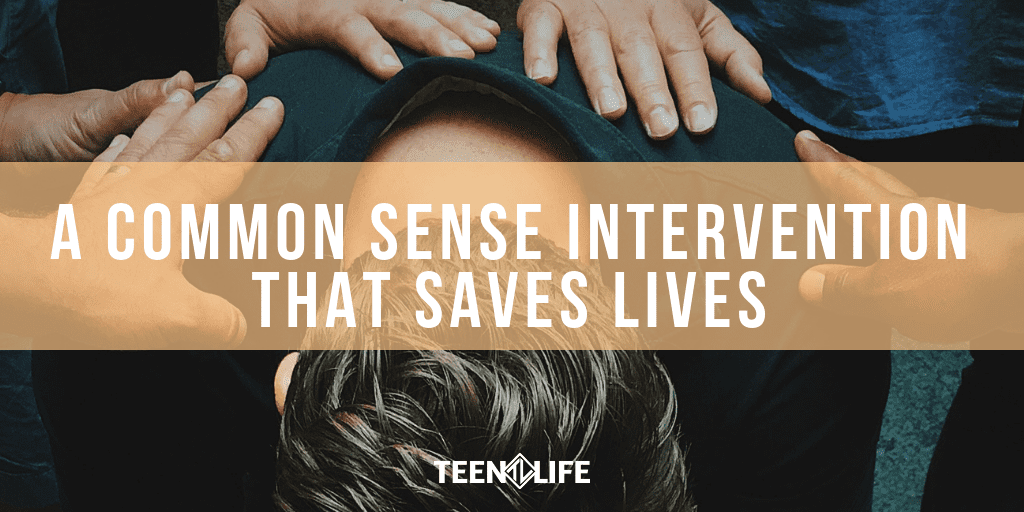Growing up in a rather sheltered environment and experiencing the “military brat” existence of moving every 3-4 years, I never really understood or heard a lot about mental health issues amongst my peers as a teenager. We didn’t watch a ton of TV or movies, and most of the music I listened to was pretty tame compared to what was out there at the time. Plus, when you move a lot, most of your time involves getting to know new people – not necessarily understanding the challenges and stresses facing your friends. I didn’t really understand what depression or anxiety looked like, nor really cared much to talk about it. I was too busy trying to keep up and worrying about myself.
It wasn’t until I started learning how to play guitar that I heard much at all about depression and suicide. There was a ’90s Christian band called “Caedmon’s Call” that featured a dark (by Christian music standards) song called “Center Aisle” lamenting a friend’s suicide. I remember being enamored by the complexity of the chords as I was learning guitar, but I was more struck by the intense emotions of the chorus line:
“What crimes have you committed, demanding such a penance?
Could have waited for five more minutes and a cry for help.”
This was the first time I had ever considered that suicide could become an option for a person feeling distraught or out of options.
It made me wonder if any of my friends had ever considered suicide as an option. While I have experienced seasonal depression, I haven’t ever gotten to the point where I wanted to end it all. But, the more I learned, the more I understood the dark places people go to when they feel there are no other options available.
The World Health Organization estimates suicide as the second leading cause of death of people 15-19 years of age. As someone who works with and loves teenagers, that isn’t just maddening – it’s a mandate for us to take action. For those so young in life to think there is nothing else to live for is an indictment on so many things. But instead of pointing fingers, let’s look at what could be some very promising research with a surprisingly simple conclusion.
In a recent JAMA Psychiatry article, research was outlined on a study of 448 adolescents admitted to a psychiatric hospital for suicidal thoughts and tendencies. Within that group, they formed a control group (this group received no treatment other than hospitalization) and a treatment group. The treatment group was asked to identify four adults in their lives that they perceived love and support from moving forward. Those four adults were then trained in suicide education and support measures and asked to check in on the teens after they left the hospital. These adults also received coaching and support from the study writers throughout the process.
After ten years, the study checked back in on the control and treatment groups and while statistically small, the results were impressive. The control group had 13 deaths while the treatment group only had two. When you break the numbers down, even conservatively, the death rate drops by over 50 percent!
I have to stress again that the numbers are way too small to draw any definitive conclusions, but for me it speaks to something incredibly important about our (yours and mine) work with teenagers – ADULTS MATTER.
I think this study important for the following reasons:
- The students selected the supportive adults
- It is so easy to feel alone as you struggle through depression and suicidal thoughts. To be prompted to identify people who care in and of itself is a healing exercise. And by selecting these adults, a connection is made that cannot be easily broken.
- The adults accept the invitation
- No one is forcing these adults to participate. But, if a struggling teen asked you to be a part of their recovery, wouldn’t you help?
- The adults learned how to support the teenager
- So many adults feel like they know what is best for a teenager. We were teenagers once, right? But a learner is a leader in this case. The presence of an adult who is willing to do what it takes to support the struggling teenager has significant influence.
To me this isn’t just about suicide, though if it saved more lives, I would be screaming this from every platform I have. But, if the presence of a caring, informed adult can potentially save a life, how much more can it help a struggling teenager? The life of a teenager can be overwhelming and full of pressures. If more adults looked and saw the opportunity to learn and ask good questions, imagine what an encouragement we could be!
I encourage you to read further on this study and the implications here and consider partnering with organizations who are putting volunteers out in the field like Teen Life here.

Chris Robey
Former CEO
Chris Robey | Former CEO
Chris has spent most of his career empowering teenagers from all backgrounds. As the former leader of Teen Life, he is passionate about helping students make good choices while also giving adults the tools they need to communicate more effectively with teens. Chris is a graduate of Midwestern State University and holds a Master’s Degree in Family Life Education from Lubbock Christian University.
